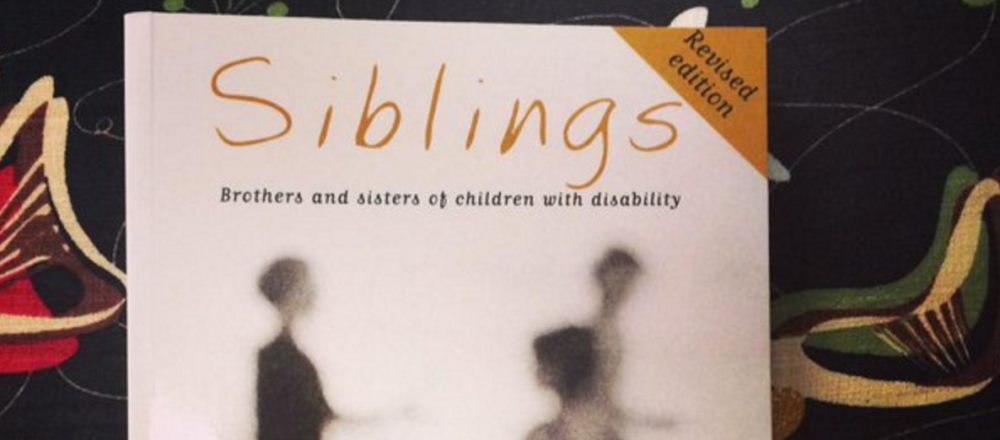Siblings
Kate Strohm
Wakefield Press
“He said my parents should place her in an institution and forget about her.”
This was the advice from a local doctor after Kate Strohm’s sister Helen was diagnosed with cerebral palsy at nine months of age in the late 1940s.
Thankfully, the general community – let alone the health sector – has come a long way in recent decades in how it thinks about disability, increasingly recognising and facilitating people’s capabilities. Parents, too, receive greater support.
Yet, as is the central premise of Strohm’s book Siblings, brothers and sisters of children with disabilities still find their needs largely neglected. This is despite the high risks of them encountering mental health issues, as they often feel guilty about feeling, let alone expressing, negative emotions about their experiences.
Equal parts guidebook, reportage and memoir, Siblings is primarily written for ‘sibs’, and, to a lesser extent, parents and professional carers. Drawing upon her personal experiences, Strohm carefully leads the reader through the range of challenges faced by siblings of disabled people – as children and adults – and outlines a selection of strategies she’s learned throughout the years to overcome them.
Strohm extrapolates on her personal experience of living with a disabled sibling by interviewing numerous siblings and parents. They consistently speak with remarkable, sometimes confronting honesty. Many articulate raw emotions that they felt unable to express for much of their lives.
One ‘sib’ Lenore confesses:
“None of the family images I saw in the media showed the reality of life in my house – 12 hours straight of my brother’s autistic tantrums, violence, screaming, and then being expected to go to school as if nothing was wrong and never telling anyone at school how much I dreaded going home.”
Siblings is an eye-opening journey for ‘non-sibs’. Although society has made progress in supporting people with disabilities, the book underlines that we’re still not very good at talking about it.
However, Strohm’s use of these anecdotal snippets – in lieu of research or broad-based evidence – to back up assertions detracts from both the personal accounts and Strohm’s broader arguments.
As chapters pass, names become familiar, but the result is still a fragmented account that isn’t underpinned by tangible evidence that siblings of disabled people face negative repercussions as a result of their living circumstances.
It is not until the final chapter that we see there is compelling research. Research that shows “that more than a third of family carers in Australia are severely depressed and/or stressed”. And studies that have highlighted the risks of depression among siblings of children with a disability, particularly if their parent had experienced depression, and regardless of whether or not the siblings played the role of carer.
The wellbeing of siblings is important for all involved, as they often take on increasing responsibility as parents age.
Strohm also unashamedly uses the book to advocate for greater government focus on sibling support (including for her own organisation Siblings Australia):
“Whilst there is much evidence to indicate that siblings need support and that many parents are very keen to access support for their ‘other’ children, siblings are nowhere to be found in government policy.“
Siblings has much to offer as a resource on family-wide best-practice disability support. The book presents important and powerful messages from voices that are rarely considered, let alone heard.
In a society that often prefers to provide support quietly without acknowledging confronting situations, it can be difficult for those directly involved to express unsettling yet natural emotions, without harbouring feelings of guilt or selfishness. While that continues, everyone involved suffers.
To this end, Siblings is a helpful starting point for anyone interested in creating a more supportive environment in their home or in the wider community.




